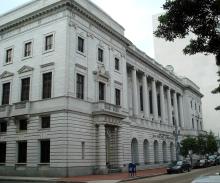What Happens Now That the Fifth Circuit Has Ruled the Universal Service Fund is Unconstitutional?
On July 24, 2024, the Fifth Circuit Court of Appeals ruled 9-7 that the Universal Service Fund is unconstitutional.
The decision throws a whole raft of federal broadband programs - including those which help schools pay for connectivity, those which help homes pay for home Internet access, and more - into a state of uncertainty.
All signs point to a stop at the Supreme Court for final ruling on the future of the program. On the most recent episode of the Connect This! Show, hosts Christopher Mitchell (ILSR) and Travis Carter (USI Fiber) were joined by regular guests Doug Dawson (CCG Consulting) and Kim McKinley (UTOPIA Fiber) as well as special guest Casey Lide (Keller and Heckman Law Firm) to talk about the decision. They discuss the impact of the decision in the long-term, including how the USF fits into the jigsaw puzzle of federal broadband funding programs and what we can expect to see if the decision is upheld.
Watch the segment below.
Email us at [email protected] with feedback and ideas for the show.
Subscribe to the show using this feed or find it on the Connect This! page, and watch on LinkedIn, on YouTube Live, on Facebook live, or below.



